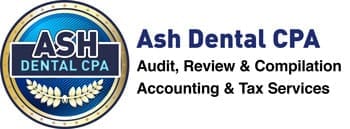Tax Audit Representation for Dentists

What is a Tax IRS Audit?
An IRS tax audit is a formal review of your business’s financial record by the IRS. It can be conducted through mail or an in-person interview by one of the IRS auditors.
Some businesses are picked randomly by the IRS as their sampling process. While others may trigger a tax audit if there are errors and loopholes in the filed returns.
Either way, your dental practice should be ready for a tax audit at any time. Also, it’s important to remember that the IRS may find any loopholes in your back taxes. So, you should keep your bookkeeping records intact for at least six years as guided by the IRS.
How Does a Tax Audit Work?
An IRS audit is initiated through an official mail. You’ll never get a telephone call as an initial process.
Then, the IRS will share its findings regarding your tax returns. It may require more information, documents, proof of expenses/income, and other records to satisfy your returned taxes.
Once the IRS receives additional information, it will announce its verdict. If it is satisfied with your provided information, there is no more work.
In other cases, you may disagree with the IRS announcement as it may ask for more tax payments including interest, penalties, and back taxes to be paid.
This is where you can use your right to appeal an IRS audit result for your dental practice.
Who Can Represent you in a Tax IRS Audit?
By law, anyone can represent you in a tax audit against the IRS. You can do it yourself or through your tax preparer. However, you’ll need a professional who can handle the matter in front of the IRS committee.
Enrolled Agents (EAs)
EAs come with unlimited audit representation rights. They are skilled and qualified professionals who can represent your case against the IRS audit results.
Tax Attorneys
Tax attorneys are well-versed in court matters. They are a good choice if you feel your case would require significant backing from an experienced law professional.
Dental CPAs
Dental CPAs come with professional qualifications and experience in working with dental practices. They can prepare your taxes, file them, and represent you in a tax audit with unlimited representation rights.
Why Use a Dental CPA for the Tax Audit Representation?
A dental CPA has the professional qualification to be your tax preparer, practice management consultant, and financial advisor.
Moreover, a dental CPA has expertise and experience in working with dental businesses. It means a dental CPA comes with the added advantages of understanding your industry.
Therefore, a dental CPA is an ideal choice for you if you need a representation in an IRS audit. As both parties would have collaborated on tax matters already, explaining and offering proof to the IRS would be easier.
Dental CPAs also have unlimited audit representation rights. Therefore, you can feel comfortable when working with a dental CPA for a tax audit representation.
How to Prepare for a Tax Audit?
Although IRS tax audits are rare, you may find yourself in that position occasionally.
Here are a few steps you should consider if your dental practice receives an IRS tax audit mail.
- Understand the scope of the IRS audit. It can be a limited mail audit that may require additional information only. A field audit may require additional information as well as documents.
- Prepare your audit response by consulting a professional like a dental CPA. You should gather any missing documents and transaction proofs that IRS requests.
- You may need to gather additional documents from other firms like banks, suppliers, and vendors.
- Submit your audit response within the allotted timeframe.
- If the IRS does not find it satisfactory, you may consider appealing the IRS verdict.
Appealing the Audit Decision
There are a few responses that you can choose depending on the type of audit verdict. In simple words, each type of appeal depends on the severity of your tax audit results.
Formal Appeal
A formal protest or appeal lets you represent your case in front of the IRS review committee. Your audit representative can your case here.
Mediation
If there are a few disputes, you can choose the mediation process. It lets you settle the audit objections quickly without escalations.
Small Case
If the IRS imposed additional taxes and penalties of less than $25,000, you can use this type of appeal. However, the IRS must accept your application to follow this route.
Offer in Compromise
You can negotiate your tax penalty and due taxes with the IRS. It is an agreement between your dental practice and the IRS where both parties would agree on a settlement that is less than the original due amount.
Learn more with a consultation today. New clients are welcome.
